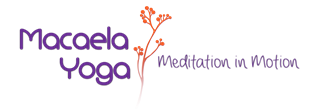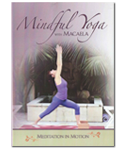In Classical yoga, the body is seen as inferior to the spirit. It is something to be subdued through fasting and extreme discipline, something to overcome, something that is a hindrance to enlightenment.
Tantra yoga, a practice in mindfulness, is a different approach, an approach that works for me. This perspective is that our body is a vehicle through which we can experience the richness of the physical world, and through the physical, the spirit. There is no separation between body and spirit. It is a philosophy of non-duality. The body is the home for the spirit, the place where growth occurs. Through the body, we can learn to live more consciously. We are spiritual beings having a physical experience. There is no need to retreat into the woods. Our lives can be our meditation. Our yoga practice can lead us to Samadhi, the sense of complete bliss that comes when we are totally absorbed in our creative action and thought. And we learn to like our bodies in whatever form they happen to be.


